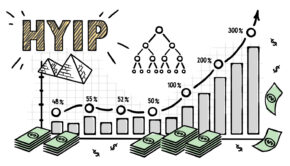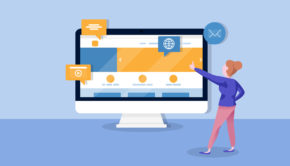The Legality of Copying a Website Design: Explained
Website copyright is admittedly, a confusing concept for many people, but the legality behind it is really quite simple: if you didn’t develop the content (blog post, infographic, photo, data), then in 90% of the cases you’ll need the permission from the owner or at least credit the owner before you can publish it somewhere else.
If you are using anyone’s content and HTML coding without permission, you are technically stealing, and the owner can take action against you. Yes, codes like HTML or CSS are also protected under copyright law, even if you modify the IDs and class names to make it look like your own code.

So, what can and cannot be copied from another website in website design? Here we will answer this question in detail.
Copyright Laws in Website Design
The main consideration when discussing the legality of copying a website design is copyright laws.
Copyright laws are designed to protect intellectual and creative properties and as the name “copy-right” suggests, it is the right of the content’s owner to permit someone else to copy this work.
Copyrightable works include, but not limited to:
- Photos, images, and graphic design works
- Textual content from articles, stories, novel, journals, and so on
- Blueprints (architecture or machinery, etc.)
- Music, song lyrics
- Plays, screenplays
- Recordings of audio and/or visual
And so on.
In the case of website design, copyrighted items include:
- Copying the whole page to use somewhere else, including printing the web page
- Copying the HTML, JavaScript, CSS, or other code of a page
- Downloading an image to your hard drive, printing an image
Most website owners will not sue you if you only copy their content for personal use, for example, if you save an image to use as your personal desktop wallpaper. Besides, it’s virtually impossible for them to detect these kinds of uses. In most cases, it’s only considered a violation of copyright if you use the content/code in public, especially for commercial use.
To summarize, the legalities of copying a web design are as follows:
- You cannot duplicate any copyrighted elements on your website, including images, source code, and text
- Using any trademarked material like brand name or logo
It is, however, perfectly legal to:
- Use other website designs as inspiration, and incorporate them into your own design
- Perfectly recreate design elements you’ve found on other sites using your own code
It’s also important to understand the legalities of your own website. In general, if you use a website template (i.e. WordPress themes, Wix template, etc.), you have no rights to the source code and it’s perfectly legal for other sites to use the same template as yours. If you have a custom-made website, however, you have ownership of your design and code, so other sites can’t use your design elements.
How Will Website Owners Detect Stolen Assets?
Many businesses publish spider or crawler bots that will search the internet for copyrighted images and text on other websites. When these bots find files that match certain criteria (similar content, same file name, etc.), they will report this site for copyright infringements. These sites will then be reviewed. More and more companies are now using these copyright spider bots.
However, for smaller websites that don’t use these bots, typically copyright infringements are detected when someone else told the website owner, or by accident. For example, via Google search where the website owner accidentally found content similar to what’s been published on the page.
There are also services like CopyScape and FairShare, that can help us scan the internet for duplicate content, which can be useful if you regularly publish text-based content. A free alternative is to set up Google alerts for keywords you often use, so there’s a chance that you’ll be alerted when someone else publishes your content elsewhere.
Fair Use of Website Content: When It’s Okay To Copy Other Websites
The term “fair use” refers to using copyrighted content for educational information or non-commercial usage. However, creating a review, parody, commentary, or similar content while using the copyrighted material might also be considered fair use.
In the case of fair use, if someone takes you to court over a copyright issue, you have to admit that you indeed stole the content, but then claim it is fair use. Typically you can only use a short excerpt from the content and you have to attribute it to the source.
In most cases, we would recommend getting permission when you want to use someone else’s content (text, image, videos) on your page, even if it’s “fair use”.
Preventing Others From Copying Your Website Design
One effective way to protect your website design from being stolen is to hide your site’s source code. This is important if you have unique elements that might be valuable for other people to copy. You can also configure your website so that images and texts cannot be copied to the clipboard.
In cases when web scraper/content scraper bots are copying your website’s content, you can use a bot mitigation solution like DataDome to help detect and manage the activities of these malicious bots from copying content from your website. This helps to protect your online content while improving your users’ on site experience.
End Words
The website and any content within it are eligible for copyrighting because it is:
- An original work by the creator
- Fixed to a tangible medium, allowing the site to be objectively perceived
- A minimal amount of deviation/variation
While it’s okay to use other website’s designs for inspiration, copying their design elements right away can be considered a copyright infringement and punishable by law. In general, if you want to use other website’s content or design elements, it’s best to ask for permission from the website owner first to avoid legal issues in the future.











![What is the Best Time to Post on Social Media? [Infographic]](https://technofaq.org/wp-content/uploads/2020/06/word-image-44-150x150.png)




